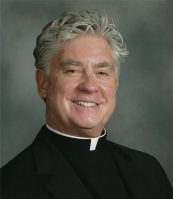Thirty years ago, Billy Joel sang: “Call me a joker, call me a fool, but right at this moment it’s totally cool…Sometimes I feel like I’m going too fast but don’t know how long this feeling might last…Darling, I don’t know why I go to extremes.” Most of us probably go to extremes at some time or other—it’s partly intentional but, for the most part, we don’t know why we do it. And sometimes, caught up in the moment, we don’t even realize we went there.
I doubt Rosa Parks thought about sparking a national movement on racism when she violated segregation laws of the time by refusing to give up her seat on a city bus in Mobile in 1955. At the 1968 Summer Olympics in Mexico City, two African-American track medal winners raised a black-gloved fist during the playing of the Star Spangled Banner. Maybe they intended to shake up and wake up society by calling attention to human rights violations in a similar way to Colin Kaepernick when he refused to stand during the national anthem before NFL games in 2016. Undoubtedly, these were intentionally alarming acts designed to force us to consider and evaluate the impact of racial injustices. George Floyd’s death, like Rosa Parks’ arrest, has roused our nation to another racial revolution that has left a sorrowful trail of tears from slavery and lynching to racial profiling and unjust incarcerations. While breaking the law, disrespecting the American flag, and dishonoring the national anthem are not noble acts, sometimes people go to extremes to draw attention to key issues not yet clearly understood or properly addressed.
They might be jokers and fools—and maybe I have been, also, when I challenge bad laws in our church or poor leadership among hierarchy—but the concern they raise is crucial to the future of our society. Jesus challenged the legal and ecclesial authorities of His time by essentially authoring the playbook for active, non-violent responses to injustices. He inspired leaders, from Gandhi to King to countless saints, to guide peaceful protests. Unfortunately, some people and groups don’t understand and are not motivated by peace and justice but act out of vengeance and hatred. Rioting, looting, destroying property, attacking police, burning flags, crosses, or other symbols of honor, or committing other crimes are sad and harmful byproducts of some demonstrations; they distract from the paramount issue, while damaging the noble and sacred cause; and these behaviors should never be tolerated. Maybe these violators think they need to go to extremes or, caught up in the moment, don’t even know why they’re doing it. Maybe, to some degree, we all have moments like that.
Though we’re in a better place in 2020 than we were in 1955, we should be much further along. I’m putting hope in the NFL, for it is among the most racially integrated, high-profile, institutes in our country where brotherhood is strong and problems tend to get dealt with and worked out. Quarterbacks like Drew Brees, who speaks well about the significance of the flag that his grandfathers fought for and sacrificed to preserve, and Patrick Mahomes, who speaks well for our city, for young people, and for bi-racial upbringing, have joined their voices with the likes of Commissioner Roger Goodell, Coach Mike Tomlin, local hero Tyrann Mathieu, and many others, who speak from their own experiences, to help us better understand how to heal and build a more just and life-giving society. Though the NFL also has jokers and fools among them, they have been enriched by one another’s stories and struggles, set-backs and achievements. They have touched triumph and many players have translated it off the field where they spend time teaching children not just to do and be their personal best but to encourage the same in each other. It may be unfair to look to them for leadership but they have a good platform and good record; I think we can all learn something valuable from them.
Though I’m putting hope in the NFL, it is secondary to the hope I place in Christ to help us know the difference between what’s cool and what’s acting the fool, going too fast or acting for what will last. Sometimes, I don’t know why, darling, we go to extremes to wake up and shake up those who violate justice or absent-mindedly allow injustices to exist. He did.

Thanks! God bless, Marge Ehr OSF
On Thu, Jun 18, 2020 at 6:29 AM CHARGED WITH SAINT CHARLES wrote:
> Father Don Farnan posted: “Thirty years ago, Billy Joel sang: “Call me a > joker, call me a fool, but right at this moment it’s totally cool…Sometimes > I feel like I’m going too fast but don’t know how long this feeling might > last…Darling, I don’t know why I go to extremes.” Most of ” >
LikeLike
Thank you for these soothing thoughts
Sent from my iPhone
LikeLike
Thank you so much for these inspiring words. I feel we as a society are forgetting our obligations to social justice. That is what Jesus taught us to do. Thank you for always reminding us of what God wants us to do.
LikeLike